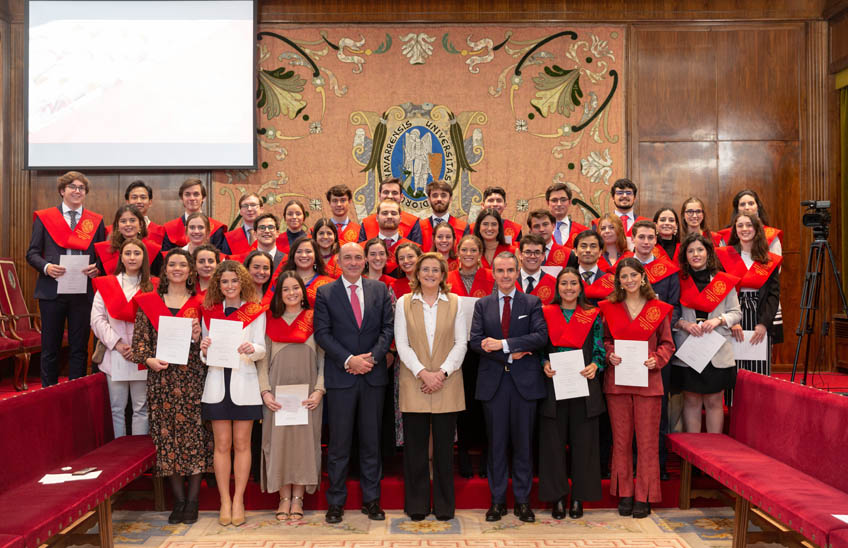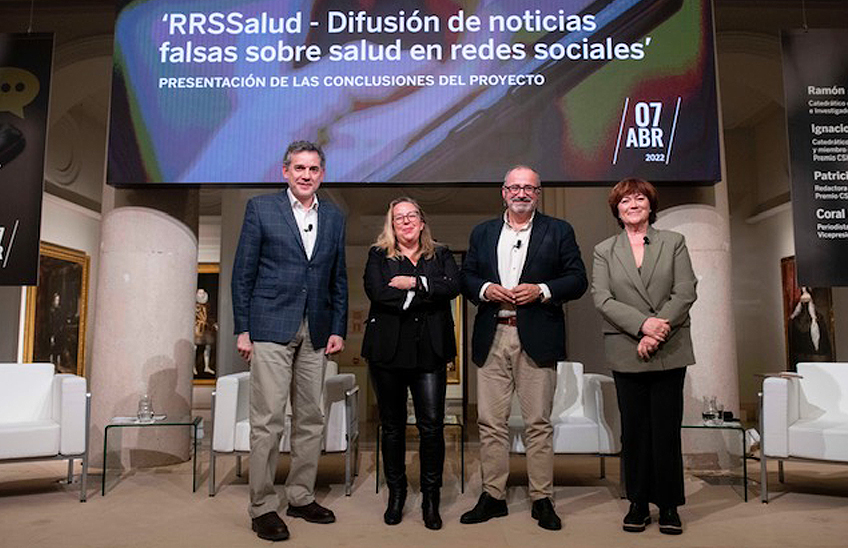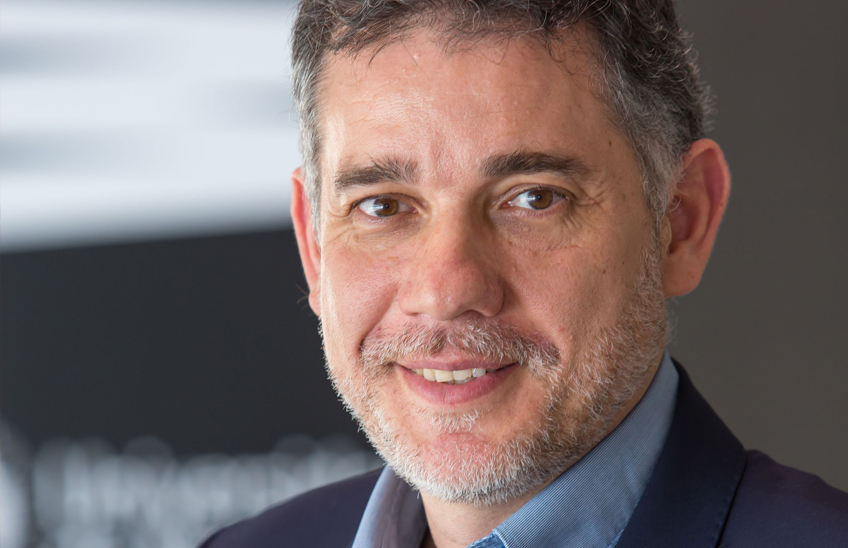"I Estudio sobre la desinformación en España", a project by UTECA and the University of Madrid.
72.1% of Spaniards admit to having once believed a message that turned out to be false and 20.4% say they forward messages without checking their veracity.
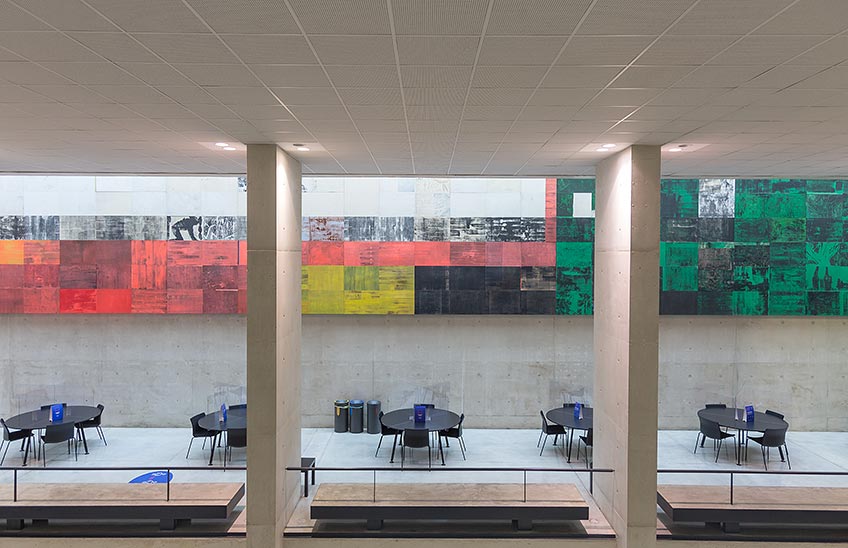
FotoManuelCastells/Interior of School de Comunicación
13 | 06 | 2022
72.1% of Spaniards admit to having at some time believed a message that turned out to be false, a percentage that rises to 73% in the 18-34 age group. 95.8% of Spaniards consider disinformation to be a problem in today's society, and for 91% it is a danger to democracy and the stability of a country. In this context, 80.9% agree that the media are the best guarantee against the spread of misinformation. These are data extracted from the I Study on misinformation in SpainThe survey, developed by the Unión de Televisiones Comerciales de España (UTECA) and the University of Navarra.
The study is the first partnership between UTECA and the University of Navarra, in the framework of the agreement signed for the development and dissemination of media literacy projects. On behalf of the University of Navarra, professors Charo Sádaba and Ramón Salaverría, from the School of Communication, took part in the study. The results of this research will help to design media literacy measures in the framework of project IBERIFIER, an observatory on digital media and disinformation in Spain and Portugal, directed by Professor Salaverría and financed by the European Commission.
The study includes a survey, carried out by Barlovento Comunicación, which was answered by 1,224 people over the age of 18. The work fieldwork took place between 15 and 25 March 2022.
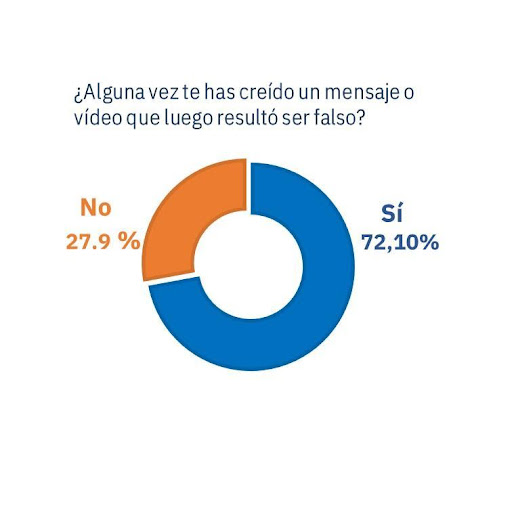
Respondents answered questions on the general perception and role of different communication channels in spreading or curbing misinformation, as well as on individual and third party behaviours towards this phenomenon.
As a general rule, the most frequently cited measure to combat the spread of fake content is to avoid forwarding anonymous messages (51%), followed by informing oneself on TV, press and radio (42.7%), as well as carrying out educational campaigns (38.5%).
When asked directly what each individual does to avoid falling into the trap of deception and its dissemination, 53.4% stated that they do not forward anonymous messages and 43.4% indicated that they get their information from television, press and radio. 20.1% say that enquiry specialised news verification media, while 6% admit that they do not take action.
The media are thus emerging as allies in curbing the spread of disinformation. Some 79.6% of respondents say that, before sharing a message, they check its veracity on television, press and radio, while 20.4% admit that they do not do so.
As a result of growing distrust, respondents estimate that 42.1% of the content they receive is false. In addition, 83.3% say that the Issue of disinformation has increased during the pandemic and the war in Ukraine. A perception that abounds in the recognition of the role core topic they give to journalistic organizations to stop its proliferation.
Free-to-air television (58.7%), the digital and print press (50.2%) and radio (48.1%) are chosen as the channels through which the most truthful, most trusted and most contrasted information is received. Social networks are far behind, with 8.8%, video sharing platforms (5.9%) and, in last place, instant messaging services, which fall to 2.6%.
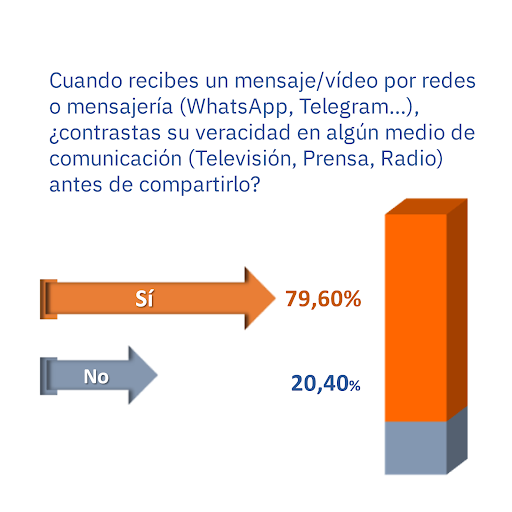
Eduardo Olano, president of UTECA, is grateful for the role core topic that Spaniards give to the media as guarantors against disinformation. "The trust that citizens place in free-to-air television is a stimulus and a responsibility to continue offering quality, truthful and verified information. For this reason, we reiterate our commitment to provide the best information, which is the fundamental tool to confront the scourge of disinformation with our own criteria", he pointed out.
For her part, Charo Sádaba, Dean of the University of Navarra's Communication School , points out that "this study highlights the extent of the problem of disinformation in Spain". For his part, Professor Ramón Salaverría considers that this study confirms that in the current communication ecosystem, the role of journalistic organisations continues to be core topic to guarantee quality information. Faced with the multiplication of anonymous sources and content of dubious reliability, Spanish citizens value the credibility of content endorsed by prestigious brands and produced in accordance with professional standards".


